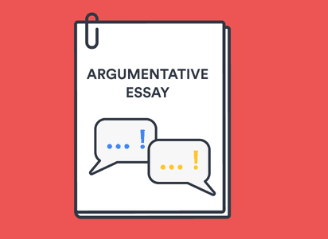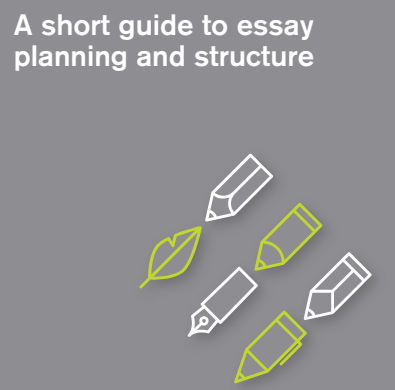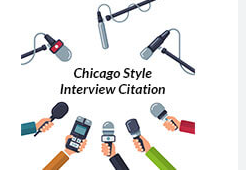How is amplification used in writing?

We occasionally create sentences. And on a specific occasion, we construct sentences by skillfully using some words together, known as amplification in writing.
Commenting on the definition of amplification, it can be said that it is the process a writer uses to accentuate or enhance particular aspects of a statement. Amplification is the process of making something stronger or louder. Amplification in literature refers to literary techniques like metaphor, imagery, and hyperbole to bring further attention to the topic.
What is the definition of amplification, and how is it used in writing?
A basic statement may be made more interesting and remembered by using amplification. By doing this, it directs the reader’s attention to the crucial information. When you amplify your writing, you direct the reader’s attention to a certain page area.
In creative writing, amplification is typically used to give the reader a vivid mental picture. For example, Ken Kesey, in Sometimes a Great Notion, discussed his Oregon-root family as:
Kesey’s being a wordy narrator might have stated that his family was a group of skinny settlers that went to the West. Still, he elaborates on their description to emphasize how slim his family is and how frequently they moved (constantly). Compared to it, if the narrator had described the Stamper family in more general terms, the reader would not have a firm picture of the family.
What work does amplification do in writing?
Philosopher Cicero of ancient Rome mentioned the definition of amplification as one of the most crucial strategies one may employ towards the conclusion of a speech, according to the famous orator. It is because audience emotion is evoked via amplification.
Here are two examples of how to convey a story. As per the definition of amplification, the first approach is composed entirely of brief lines with no amplification:
I was cycling down a peaceful road. A car approached a stop sign. I used my brakes since I couldn’t determine if the motorist had noticed me. I fell. The guy gave me a strange look before driving off.
It might be a little challenging to determine which aspects of the tale are crucial. Is it a nice bicycle ride? The drop? The driver? The amplification in the next sentence draws attention to those specifics:
An automobile suddenly popped into my peripheral vision as I pedalled my bike down a peaceful street. I didn’t see the automobile was approaching a stop sign, so I slammed on the brakes out of concern for a collision. Instead, I was sent flying over my handlebars headfirst as if I had collided with a phantom wall on an otherwise vacant roadway when my front wheel suddenly halted before the back one. The guy gave me a strange look before driving off.
The second version depicts the fall considerably more precisely. The reader is more shocked and embarrassed by the rider’s reaction. The driver’s cool reaction is hilarious in the second instance as compared to the risk experienced by the biker.
As per the definition of amplification, writing can also be made smoother by its usage. You are writing more accurately about how we move through the world—alternating between a limited and a broad focus—by providing certain information and omitting others. As per the definition of amplification, writing without amplification might seem abrupt.
Definition of amplification as a rhetorical device
Three primary persuasion techniques may be employed in rhetoric; a language intended to convince, enlighten, or inspire an audience. These tools include
- Logos: beg to logic
- Ethos: beg to belief.
- Pathos: beg to emotions.
When making a strong case, all three elements are crucial. Because it plays up the emotions of a scenario, the rhetorical device of amplification is effective in the context of pathos. It is particularly helpful for authors who want to inspire or persuade their audience.
Similar literary devices
Some literary devices may be used as synonyms for amplification since they are approaches that enhance your work. However, literary devices are the exact instruments you employ to decorate your work, whereas amplification is a general phrase for the process. The following are some of the most typical literary strategies for amplification:
Hyperbole: Exaggeration is used to emphasize hyperboles. They are not meant to be taken literally and are frequently absurd. By exaggerating the facts and making a situation appear more dramatic than it is, using hyperboles can lead to amplification.
Redundancy: Redundancy is the use of a term or statement repeatedly. For instance, Alexander and the Terrible, Horrible, No Good, Very Bad Day by Judith Viorst employs repetition in its title to suggest that this is not Alexander’s finest day. Such repetition emphasizes the point and can be used to emphasize a certain trait.
Congeries: Congeries are groups of words tied together to form a description. For instance, you may describe Alexander (of the awful day) as a young, redheaded lad who sits in the middle seat and is car sick. The conglomeration of all those adverbs on Alexander is absurd. Congeries do not always need the words in them to have the same meaning, which is a little distinction between them and redundancy. In either case, they exaggerate a subject’s advantages and provide amplification.
You might use countless additional literary methods, and each one amplifies your work differently.
How to create amplification in writing?
Reading descriptive writing is one of the finest methods to understand the definition of amplification. Furthermore, you may begin to enhance your writing after you grasp the resources available successfully.
- 1. Find out the most crucial information. What do you hope the reader will relate to? What is the primary message?
- Use descriptive language, such as adjectives, hyperbole, and literary techniques, to expand on those specifics.
- Consider the punctuation. Use em dashes, commas, and parentheses to set off detailed language. For instance: The kitchen, a dark, windowless room with a single-burner stove that occasionally worked, was not frequently utilized. In this instance, the sentence inside the em dashes provides a thorough description and emphasizes how neglected the kitchen is.
When is it best to avoid amplification?
As per the definition of amplification, it is quite helpful when writing about creative pieces, such as persuasive essays, creative fiction, etc. Amplification is not always required, though. You don’t need to amplify texts that benefit from directness, like a work email. In creative writing, focusing on minor elements with amplification might lead the reader astray or make them uncertain of what is crucial to the plot. Overuse of words might lead readers to focus less on all of your details and more on a few selected ones.
Illustrations of amplification
Here are some examples which can help in understanding the definition of amplification in simple sentences:
Simple sentence: The dog chased the squirrel after spotting it.
Amplified sentence: The dog kept its ears in the direction of the taunting squirrel in the tree, then leapt from its stoop, lunging and barking and snapping but finally losing owing to a lack of speed and an excess of gravity.
Simple sentence: I’ve just now noticed how hungry I am.
Amplified sentence: My stomach suddenly let out a growl that sounded like a lion emerging from the rear of a cave.
Literature examples of amplification
The definition of amplification as understood by Charles Dickens in his work, Our Mutual Friend, can be found in the below paragraph:
Dickens used the words “new,” “bran-new,” and “spick and span new” often. The usage of repeated words amplifies the type of freshness in the neighbors.
The definition of amplification, as understood by Gabriel Garcia Márquez in his Living to Tell the Tale, can be found in the below paragraph:
Since the beginning of the sixteenth century, the rain had not fallen in Bogotá, but Márquez utilizes hyperbole to emphasize how drenched the city had become. He also used personification, referring to the rain as “insomniac.”
The definition of amplification as understood by Roald Dahl in his The Twits can be found in the below paragraph:
In Dahl’s passage, it’s not only that having nasty thoughts may make a person ugly, but it can grow over time if not stopped. The amplification in this line paints a complex picture of a face that change, going from terrible to more hideous.
Amplification FAQs
What is the definition of amplification in writing?
The definition of amplification can be like extending or embellishing a statement to emphasize a certain point is known as amplification. Writers can direct their readers toward crucial elements and elicit an emotional reaction by utilizing amplification.
How does amplification work?
Amplification makes the reader more interested in the text by providing a creative, unexpected, or lyrical description of something..
When is amplification used?
Amplification is used in rhetoric to link emotion to an argument, in daily storytelling to highlight specific details, and in creative writing to produce vivid imagery.
Total Assignment Help
Incase, you are looking for an opportunity to work from home and earn big money. TotalAssignmenthelp Affiliate program is the best choice for you.
Do visit : https://www.totalassignmenthelp.com/affiliate-program for more details
Total Assignment help is an assignment help online service available in 9 countries. Our local operations span across Australia, US, UK, South east Asia and the Middle East. With extensive experience in academic writing, Total assignment help has a strong track record delivering quality writing at a nominal price that meet the unique needs of students in our local markets.
We have specialized network of highly trained writers, who can provide best possible assignment help solution for all your needs. Next time you are looking for assignment help, make sure to give us a try.
Looking for Assignment Help from Top Experts ?
Get the best Assignment Help from leading experts from the field of academics with assured onetime, 100% plagiarism free and top Quality delivery.







